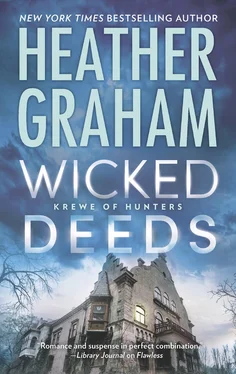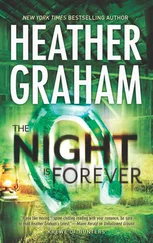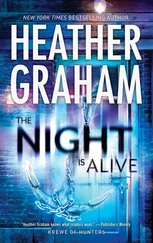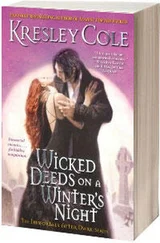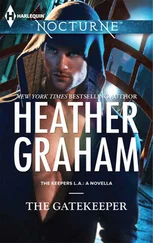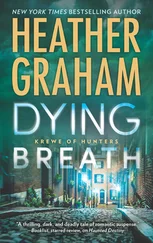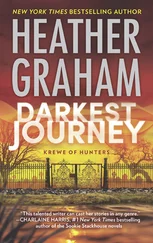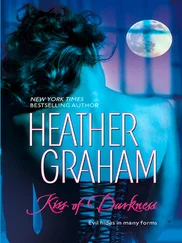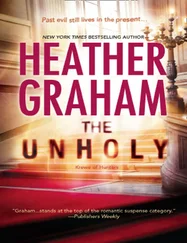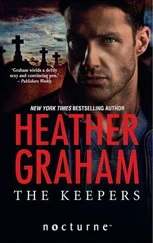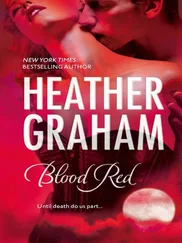They knew each other deeply; knew they saw and felt what most others did not.
And, still, sometimes Vickie seemed timid, as though afraid that when she spoke aloud what she had to say would sound ridiculous.
“Vickie!” he persisted. “It’s me!”
“Okay!” she said, and smiled. She took a breath. “Remember this morning? You asked me if I was having a nightmare.”
“Yes.” Griffin didn’t press.
“I was. Kind of. I was dreaming about Edgar Allan Poe. I was here—in Baltimore. But it was way back in time—on the day that he was found in delirium before he was taken to the hospital for the few days before he died. Poe was talking to me. He warned me not to assume that it was like what had happened to him.”
“This was before I heard from Jackson?” he asked her.
She nodded gravely. “Yes, Griffin. Before. I mean, I thought I was dreaming about Poe because we were in Baltimore, because we had enjoyed that great dinner and the Black Bird and our waiter had kind of inundated us with Poe. But...”
Griffin sat quietly.
The “gift” or “curse” that united Krewe members—that had sent Adam Harrison on his quest for his special teams—manifested in different ways. For most of them, it was simply seeing and speaking with the dead.
But because of what Griffin had seen and encountered over the years, there was little that he denied as possible.
Oh, he doubted most people! He was a horrible skeptic. He’d learned to be, since the world was far more filled with fake seers, psychics, mystics and mediums than most people would ever imagine.
But there were also those who truly had a sixth sense—and it did, sometimes, manifest itself in the world of dreams and nightmares. This wasn’t the first time Vickie had communicated with the dead in visions while sleeping.
“So, under these circumstances, your nightmare meant something. We’ll assume that you had the dream for a reason—and that it wasn’t an Edgar Allan Poe overdose at the restaurant. Did you see in this nightmare that the cameras at the front would get nothing?”
Vickie shook her head. “No, I just saw Poe himself in the nightmare. Maybe Poe was witnessing it, or... I don’t know. But I believe that Franklin Verne was murdered, and that his murderer is too smart to be caught on film. There’s also a delivery entrance. There’s a driveway that goes down to the basement at the back, remember? Receiving for the kitchen is next to the wine cellar, right through one of the little doors.”
“Yes,” Griffin told her. “I walked the whole thing. So, tell me—how did he get in through the receiving door?”
“With a friend. Or a so-called friend.”
“A friend? So you’re thinking accidental—or depraved indifference?”
“No,” Vickie said again, emphatic. “I think that Franklin trusted this person—and shouldn’t have. I don’t think that he set out to drink. I believe he loved his wife as passionately as she loved him. She had no problem with him being a wild Hemingwayesque writer—she didn’t care until his excesses started to kill him. Only then did she put her foot down. And I believe he knew that everything she did was because she loved him.”
“Wow. You did just meet her, right?” he asked, smiling—but with a sardonic tone.
“Oh, ye of little faith!” she said. “I am good at reading people.”
He laughed. “I have faith. I buy what you’re saying, too. I never heard anything other than that those two—Franklin and Monica—had a beautiful marriage.”
Griffin shifted his attention for a moment to navigating the one-way streets throughout downtown around the University of Maryland campus.
“And, we can’t forget the Poe mania around here—and Poe’s stories!” Vickie said. “There’s ‘The Cask of Amontillado’!”
“Ah-ha!” he said. “The cask of Amontillado. Wine? A cask of wine. Saw lots of bottles down in the cellar, but no casks. Something I didn’t notice?”
Vickie nodded gravely. “I’m not talking about wine—it was a short story by Poe, circa 1846. The narrator of the story is a man named Montresor. He’s very angry with and jealous of an acquaintance, Fortunato. Fortunato has insulted him gravely, you see. The story is haunting and gothic and creepy—Montresor is dressed for the carnival season in black, and Fortunato is in all the colors of the jester. Anyway, to make a long story short—”
“Too late,” Griffin assured her, which earned him a glower.
“Montresor tricks Fortunato with wine, promising him a most unique sherry—and saying that if he’s too busy, he can get one of Fortunato’s competitors to come try it. Fortunato is too vain to allow someone else to try the wine. Montresor never explains what the insult was that he’s so angry about—he’s just on a vendetta and he explains how he’s become judge and jury. In the end, he walls poor Fortunato up in a crypt—and we learn he remains there, undisturbed, for fifty years. Pretty harsh.”
“He gets away with it?” Griffin asked.
“You never read the story?”
“Um—no.”
“What? How did you manage to neglect Poe growing up? You’re from Boston. Okay, so Poe hated Boston, but he was actually born there.”
“Hey! I know some of Poe’s work,” Griffin protested. “Everyone knows ‘The Raven.’ I absolutely loved Vincent Price. And Peter Lorre and—”
“You’re talking movies, not the written word!”
Griffin laughed. “Yeah, well? Without Poe, we wouldn’t have had the movies. A few years back—I don’t know how many—there was a movie with John Cusack playing Poe. In that version he died to keep his love from being murdered.”
“That’s not how he died! That was a movie.”
“Ah-ha! But you see, no one knows how he did die—that’s the point, isn’t it?”
“Yes, but the movie had him engaged to a pretty young thing. In reality, he was about to be married—as I was telling you—to Sarah Elmira Royster Shelton, she with the brothers who might have been murderers, and with whom he’d been in love when he went to college. Her father hadn’t approved and he’d destroyed all of Poe’s letters to her, and so young love had been thwarted. Anyway, years later, her husband was dead and Poe’s wife, Virginia Clemm, was dead, and Poe and the woman he’d loved in his youth met up again. Poor man, he was just forty when he died. But Sarah Elmira was no sweet young innocent—she was about his age, a mother, all grown up.”
“Killjoy,” Griffin told her, and Vickie laughed softly.
“I don’t mean to be. I love a John Cusack movie, too. I think I would have found a different way to explore what had really happened. I mean, he was found delirious in clothing that wasn’t his! How did that happen? He’d joined the temperance society before he left Richmond, but of course, no matter how you look at it, the man was an alcoholic—though it seemed that he was a binge drinker rather than a habitual drunk. I can’t help but think sometimes that he might have had a much better life if he’d lived in our day and age. So much information disappeared right along with him regarding the days he was missing! His death was as much a mystery then as it is today.”
“‘Once upon a midnight dreary, while I pondered, weak and weary...’”
Very determined, Griffin went ahead to repeat a good section of the famous poem. What he couldn’t remember, he thought he faked with a tremendous amount of panache. Vickie was grinning as he gave her his dramatic interpretation, so he was pretty sure that she knew when he was doing his ad-libbing.
“Well, you know the title, you know it’s a poem and you know it’s by Edgar Allan Poe,” she said, amused. “I’m totally impressed.”
Читать дальше
